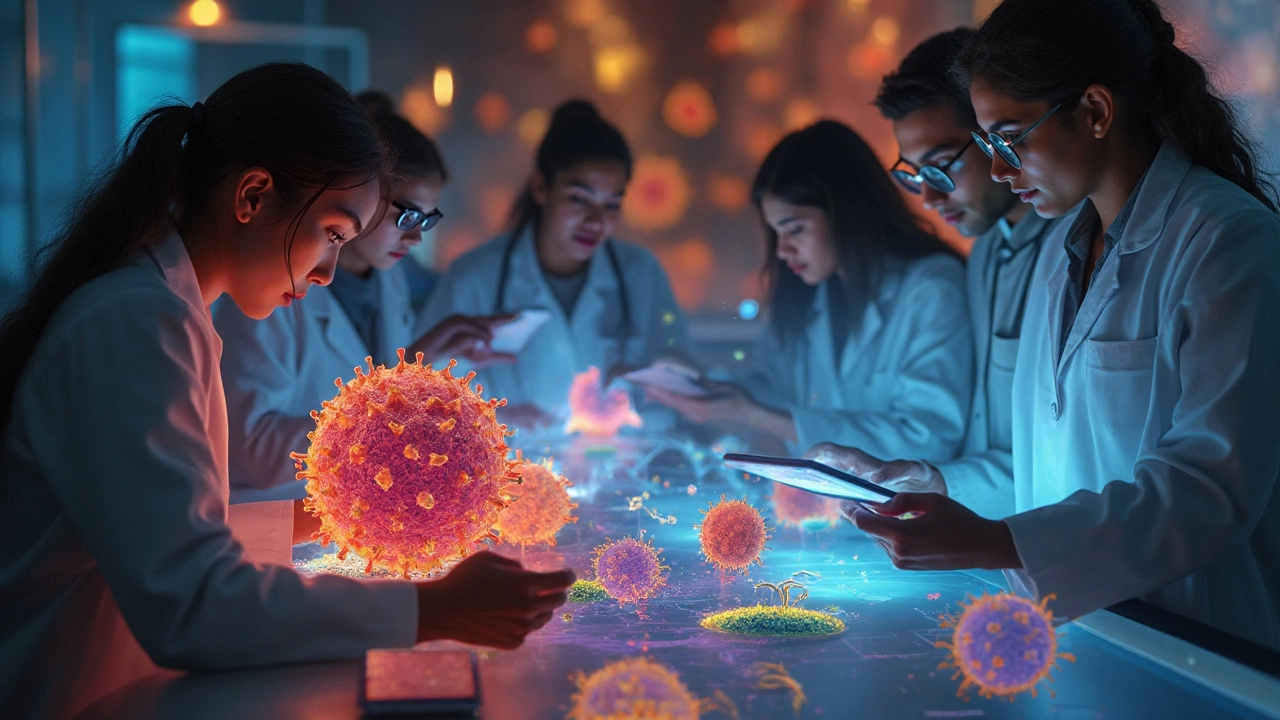Tumor Growth – What You Need to Know
When you hear the word “tumor,” it feels scary, but the reality is more nuanced. A tumor is just a lump of cells that keeps multiplying. Some stay harmless (benign), while others turn malignant and become cancer. The speed of that growth depends on genetics, environment, and—surprisingly—a lot of what we put into our bodies, including medicines.
In India, the mix of traditional remedies and modern drugs creates a unique landscape for toxicology. Certain prescription pills, over‑the‑counter supplements, and even herbal concoctions can contain ingredients that interfere with normal cell regulation. That doesn’t mean every drug is dangerous, but knowing the red flags helps you make safer choices.
How Medications Can Trigger or Accelerate Tumor Growth
Some drugs are designed to stop cell division, yet others unintentionally do the opposite. For example, hormone‑based treatments used for menopause or certain contraceptives can raise estrogen levels, and high estrogen can spark the growth of breast tissue cells. In a few cases, long‑term use of immunosuppressants after organ transplants has been linked to higher rates of lymphomas because the immune system can’t keep rogue cells in check.
Even natural supplements aren’t exempt. A popular herb called “Kanchanar” is praised for weight loss in some circles, but it contains compounds that may mimic estrogen. When taken in large doses over months, it could theoretically feed hormone‑sensitive tumors. The key is dosage and duration—tiny amounts for a short spell rarely cause trouble, but chronic high exposure can add up.
What’s more, some prescription painkillers hide heavy metals like lead or cadmium as fillers. Those metals accumulate in tissues and have been shown to cause DNA damage, a stepping stone toward tumor formation. If you’re on a long‑term pain regimen, ask your pharmacist about the purity of the formulation.
Practical Steps to Reduce the Risk
First, keep a written list of everything you take—prescriptions, OTC meds, vitamins, and herbal mixes. Share that list with your doctor at every visit. A quick review can spot potential culprits before they become a problem.
Second, stick to the recommended dose. More isn’t always better, especially with “natural” products that lack strict regulation. If a supplement claims you need a spoonful a day but the label says a quarter‑spoon, trust the label.
Third, prioritize foods that help the body detox harmful substances. Green tea, turmeric, and cruciferous vegetables like broccoli boost the liver’s ability to break down toxins. Including them in your daily meals offers a simple, low‑cost buffer against drug‑related chemicals.
Finally, get routine screenings based on your age and family history. Early detection catches tumors when they’re still small and easier to treat. In India, many city hospitals now offer low‑cost mammograms and colonoscopies—take advantage of those programs.
Bottom line: Tumor growth isn’t a mysterious fate sealed by fate; it’s often a result of everyday choices. By staying informed about the medicines you use, monitoring doses, and supporting your body with a clean diet, you cut down the odds of a rogue cell turning into a bigger problem. Have questions about a specific drug? Talk to a qualified toxicologist or your prescribing doctor—they’re the best resource for personalized advice.

What Stops Cancer Cells from Growing? The Science Behind Tumor Control
Why don’t all cancer cells run wild in our bodies? This article explains the real roadblocks that slow down or stop cancer growth—from the body's own defense tricks to the science behind targeted treatments. You'll learn how researchers find weak spots in cancer cells and what you can do to support your body during treatment. The info is clear, practical, and geared toward anyone curious about how these breakthroughs actually work.




